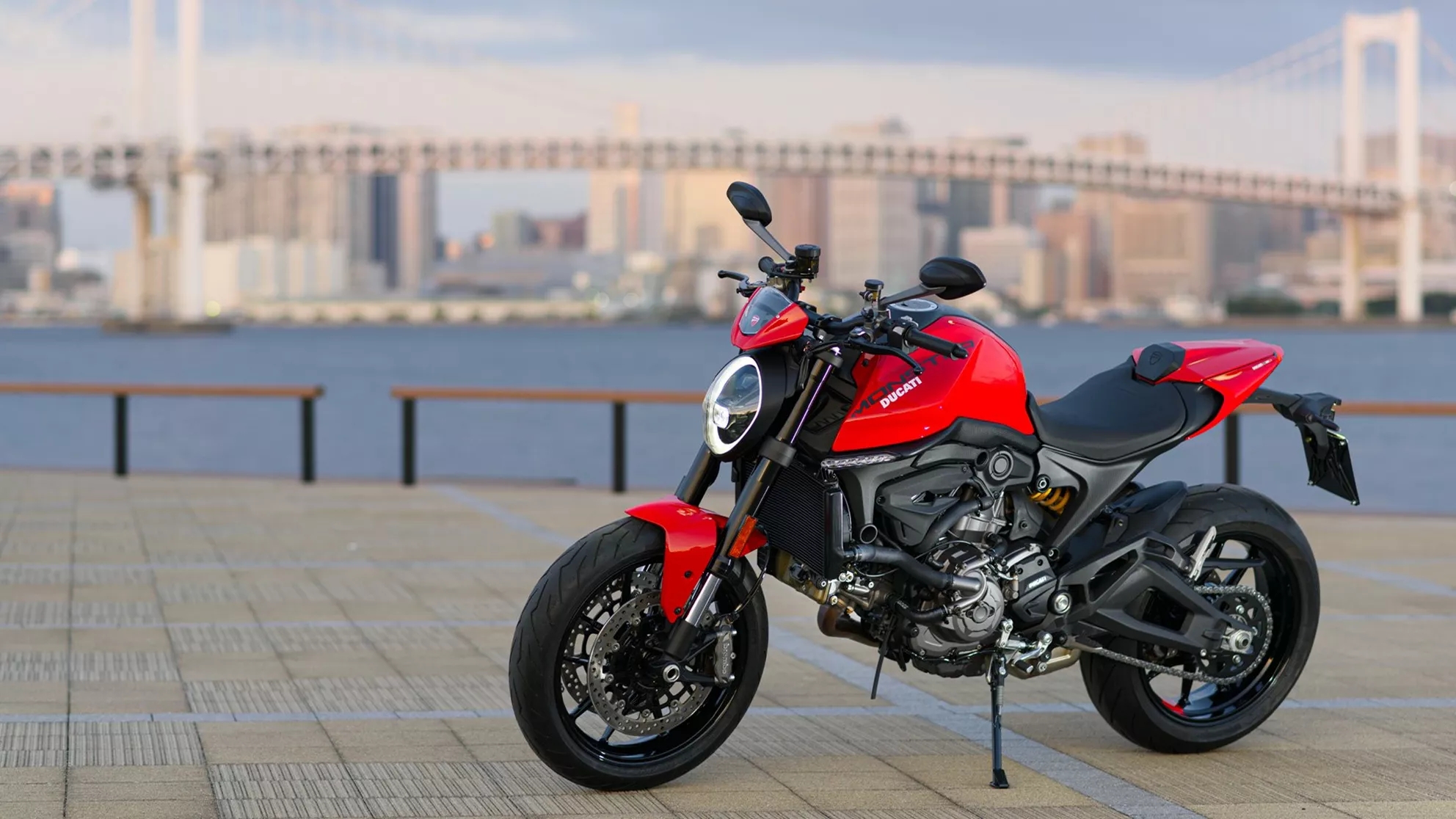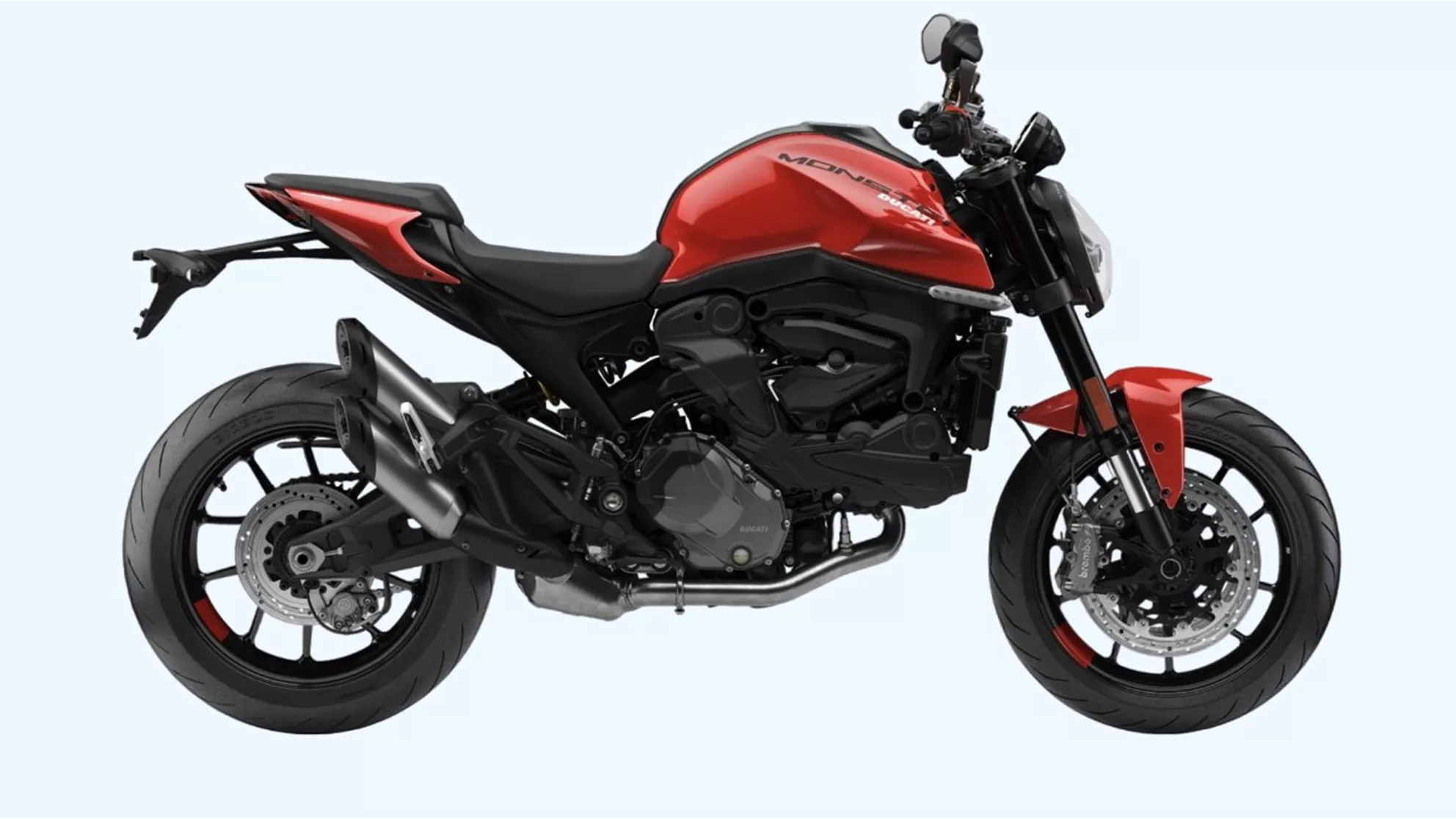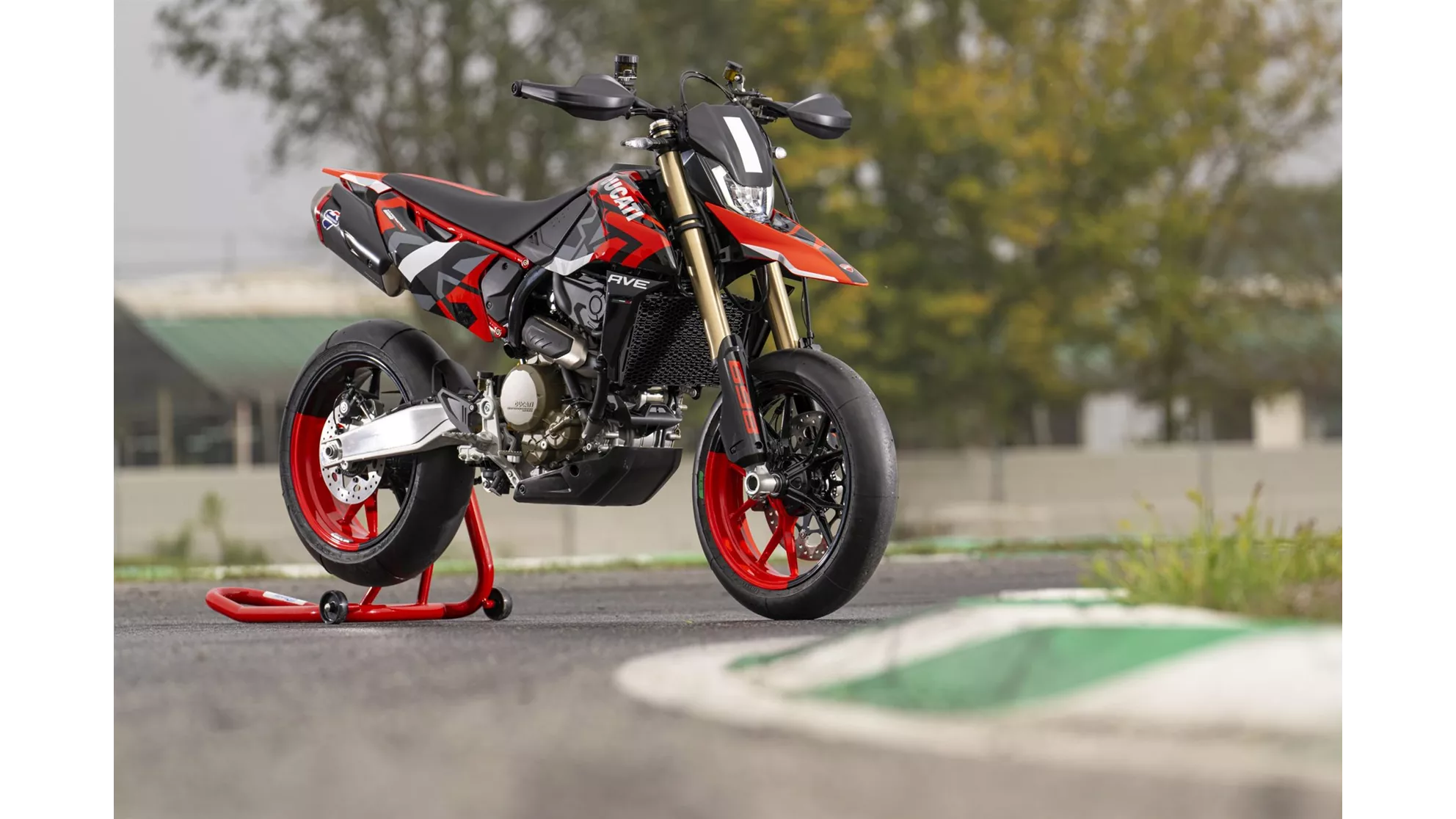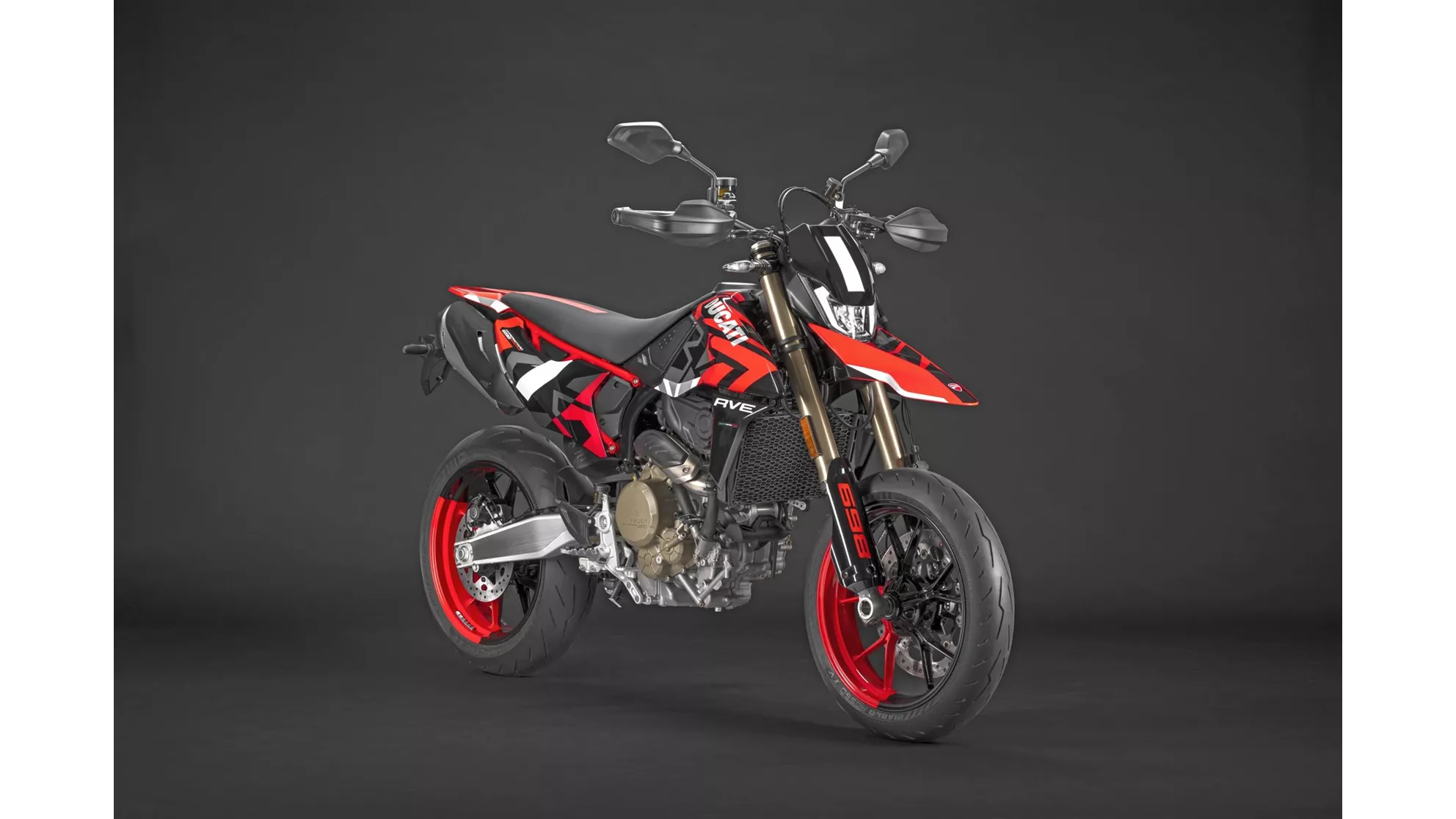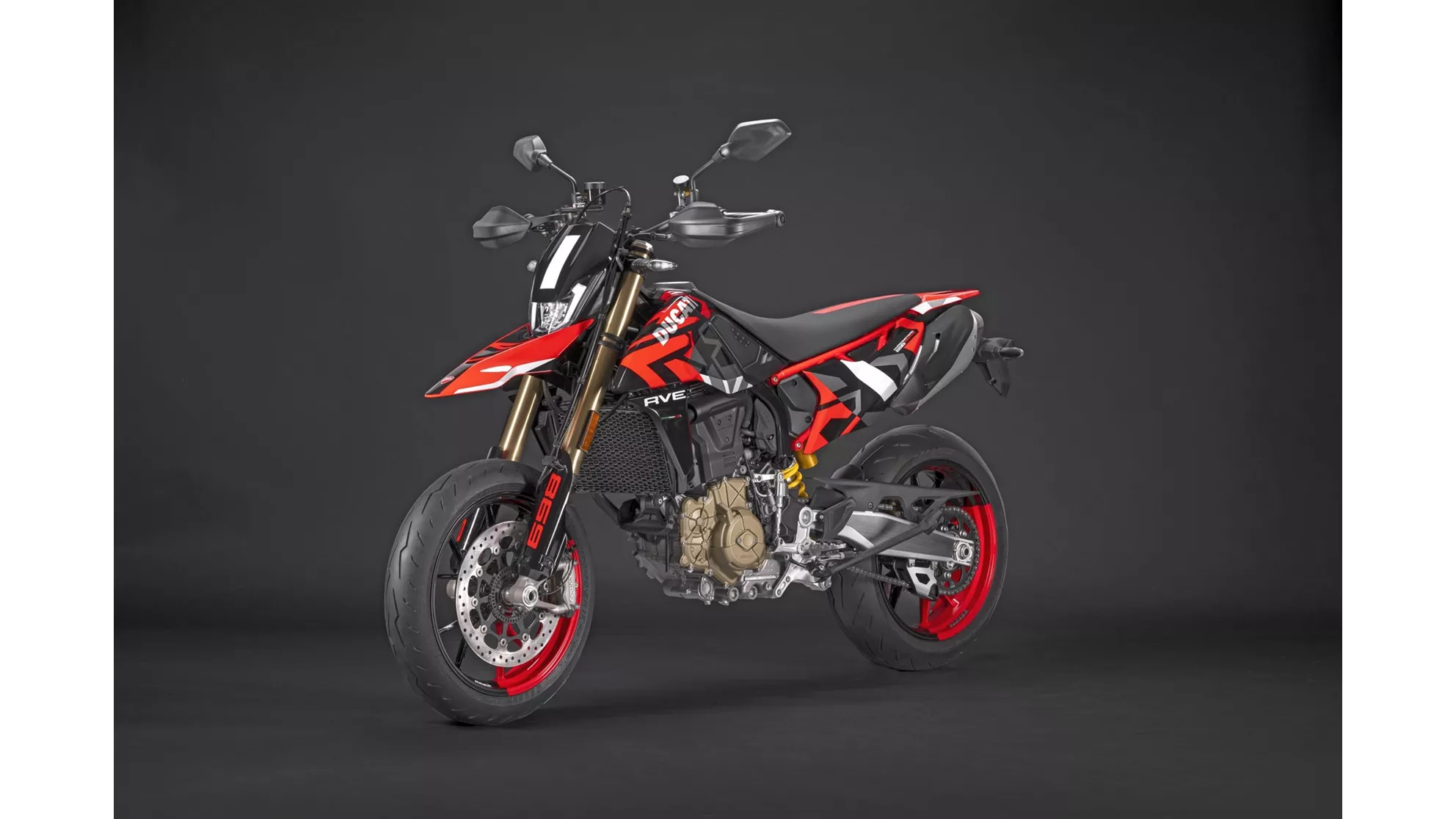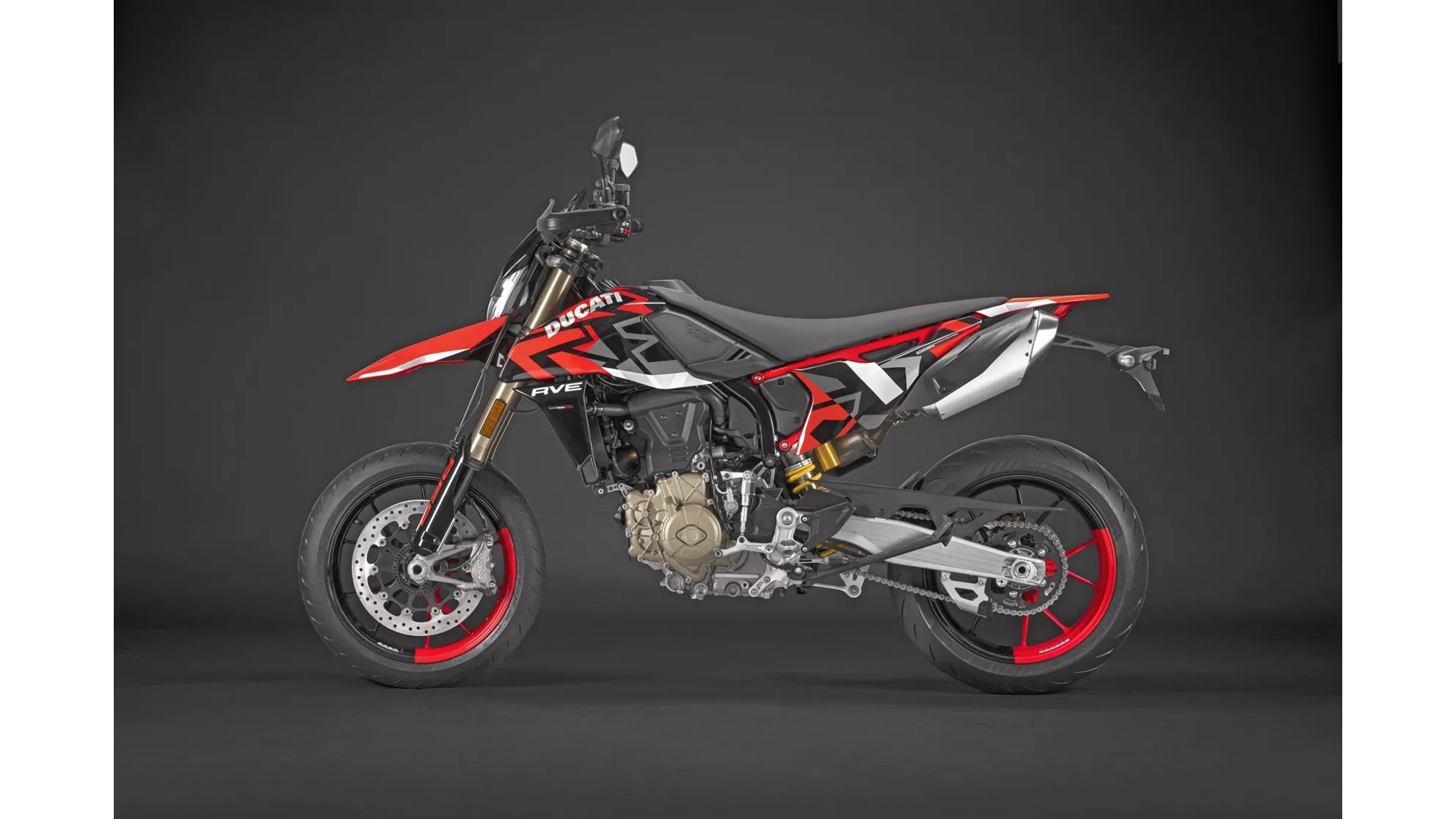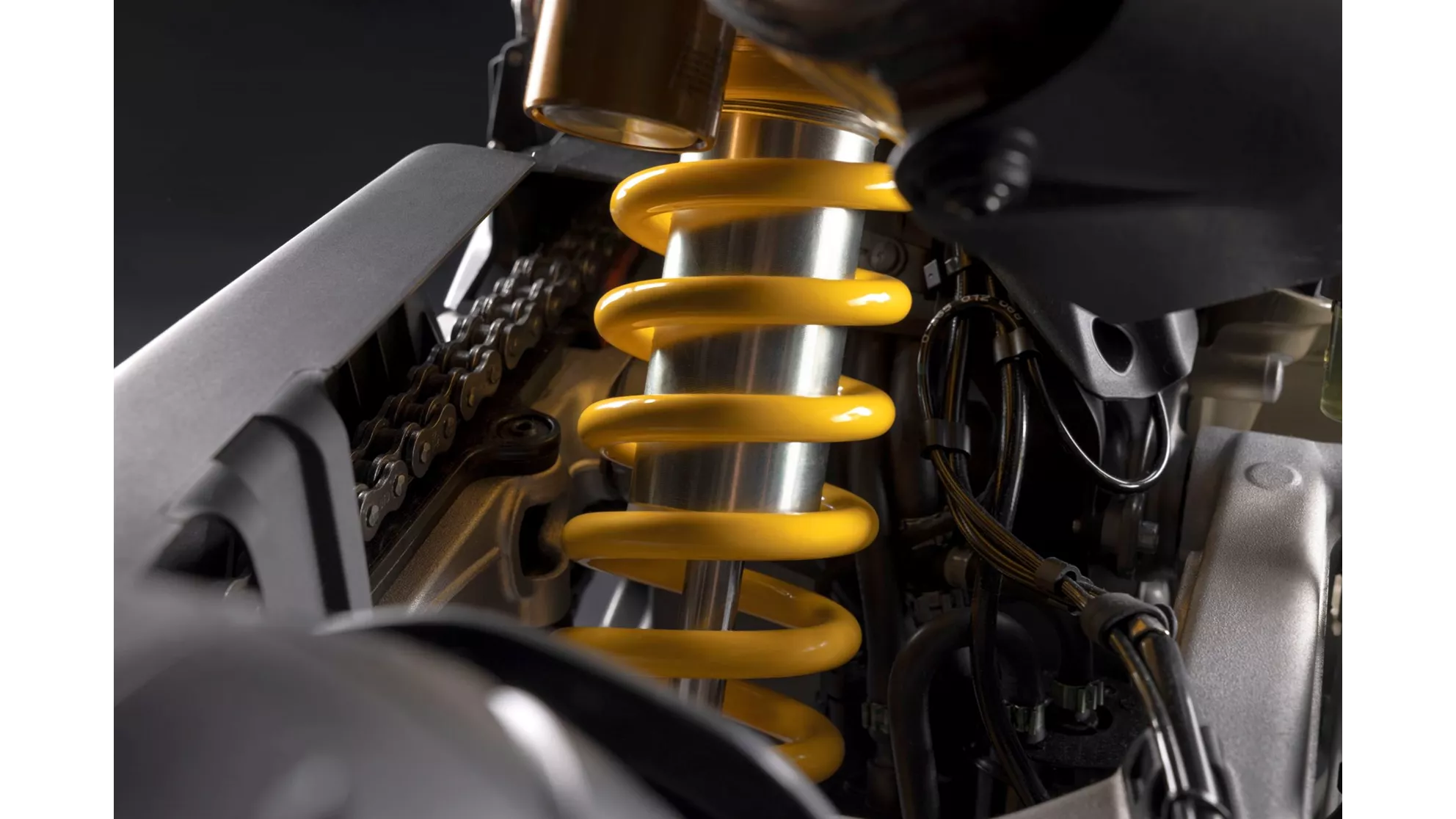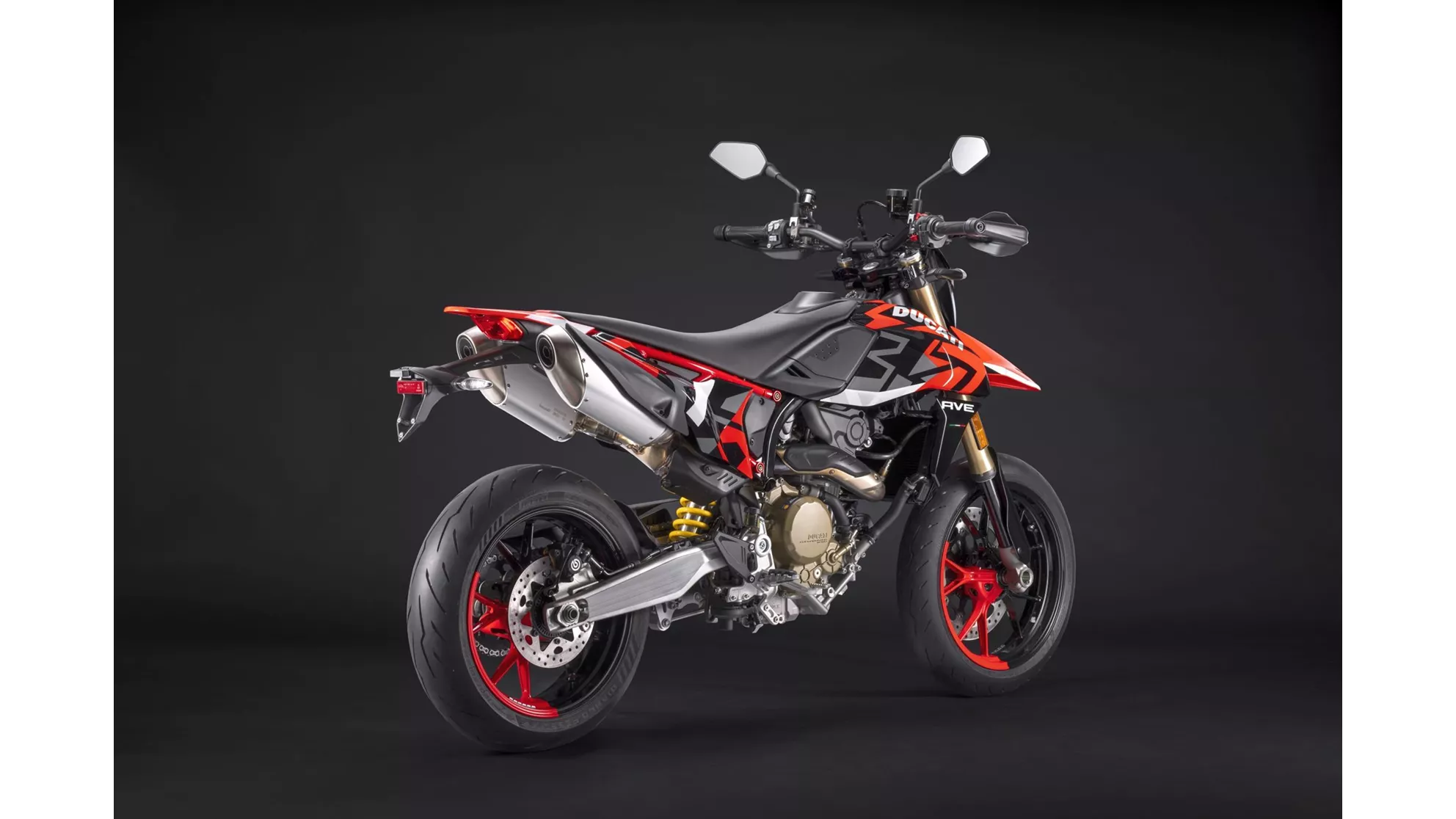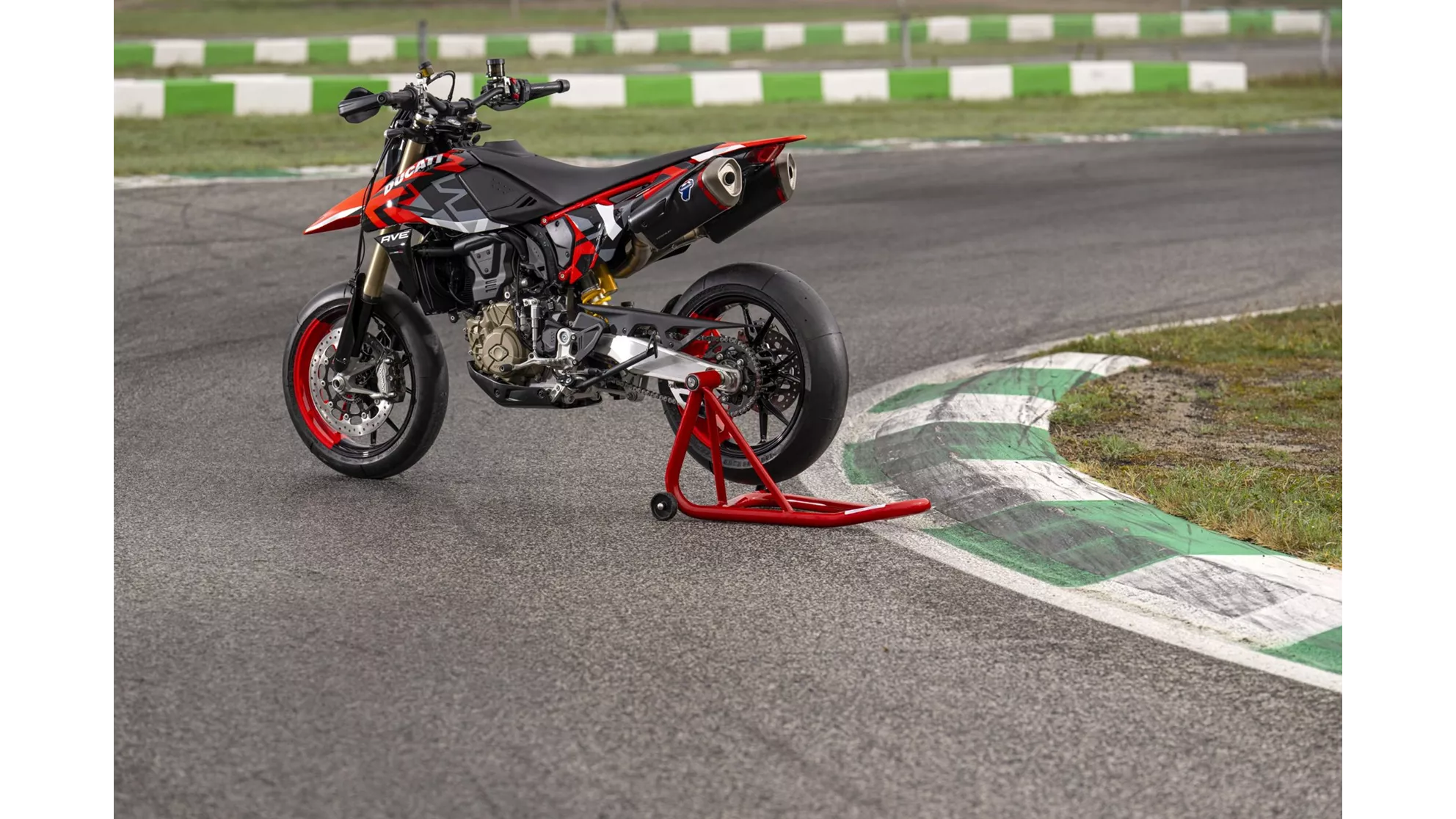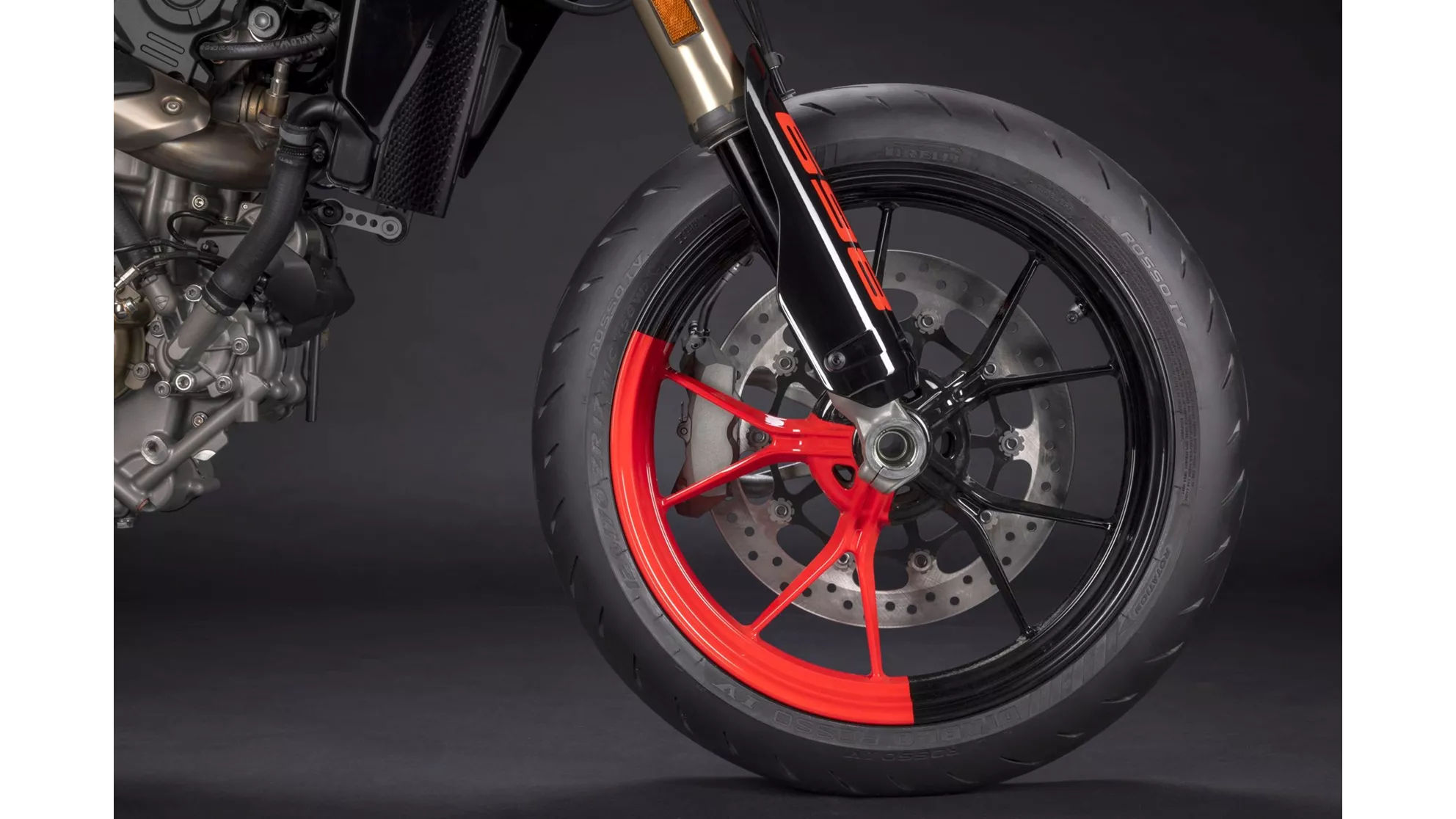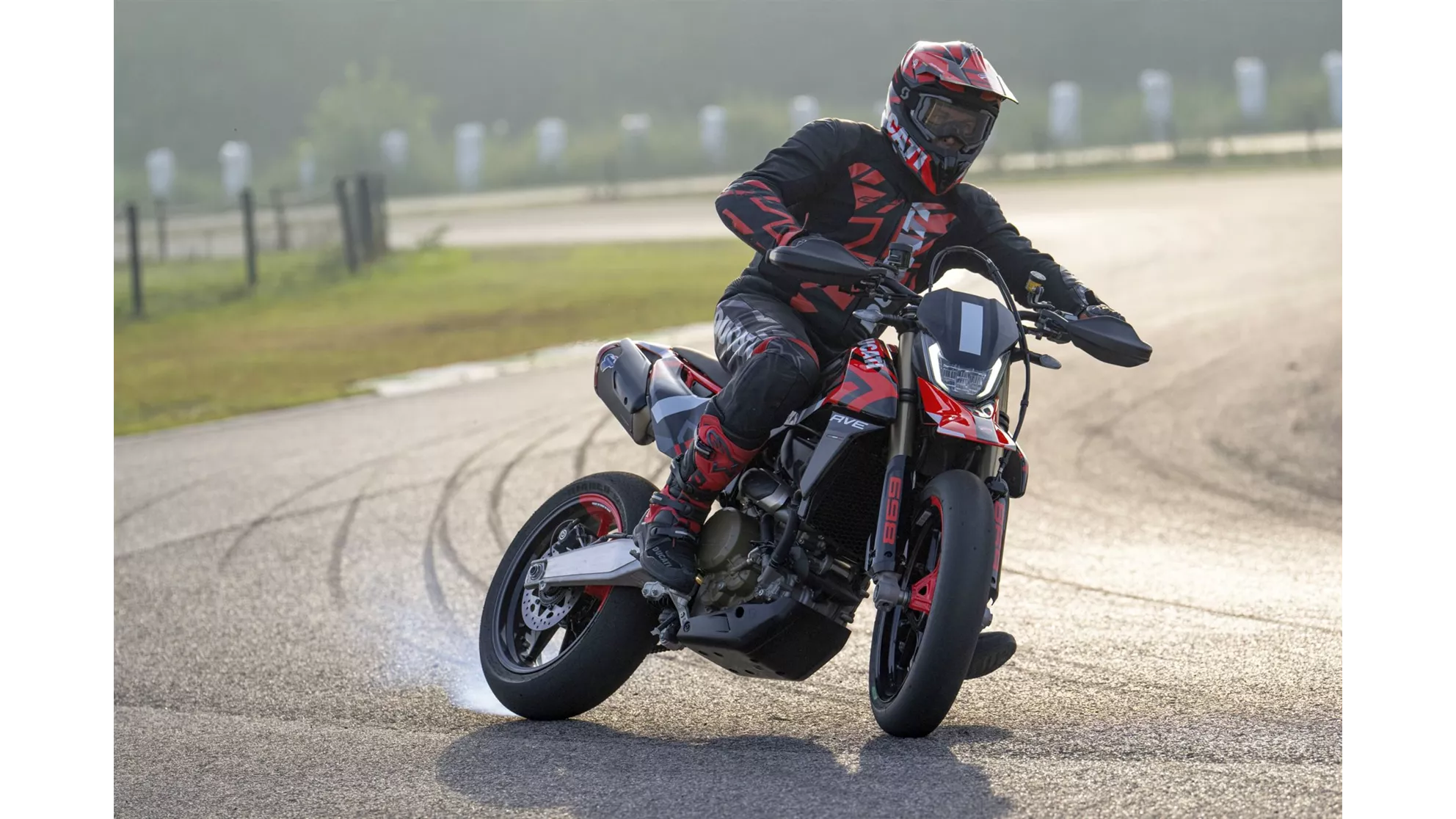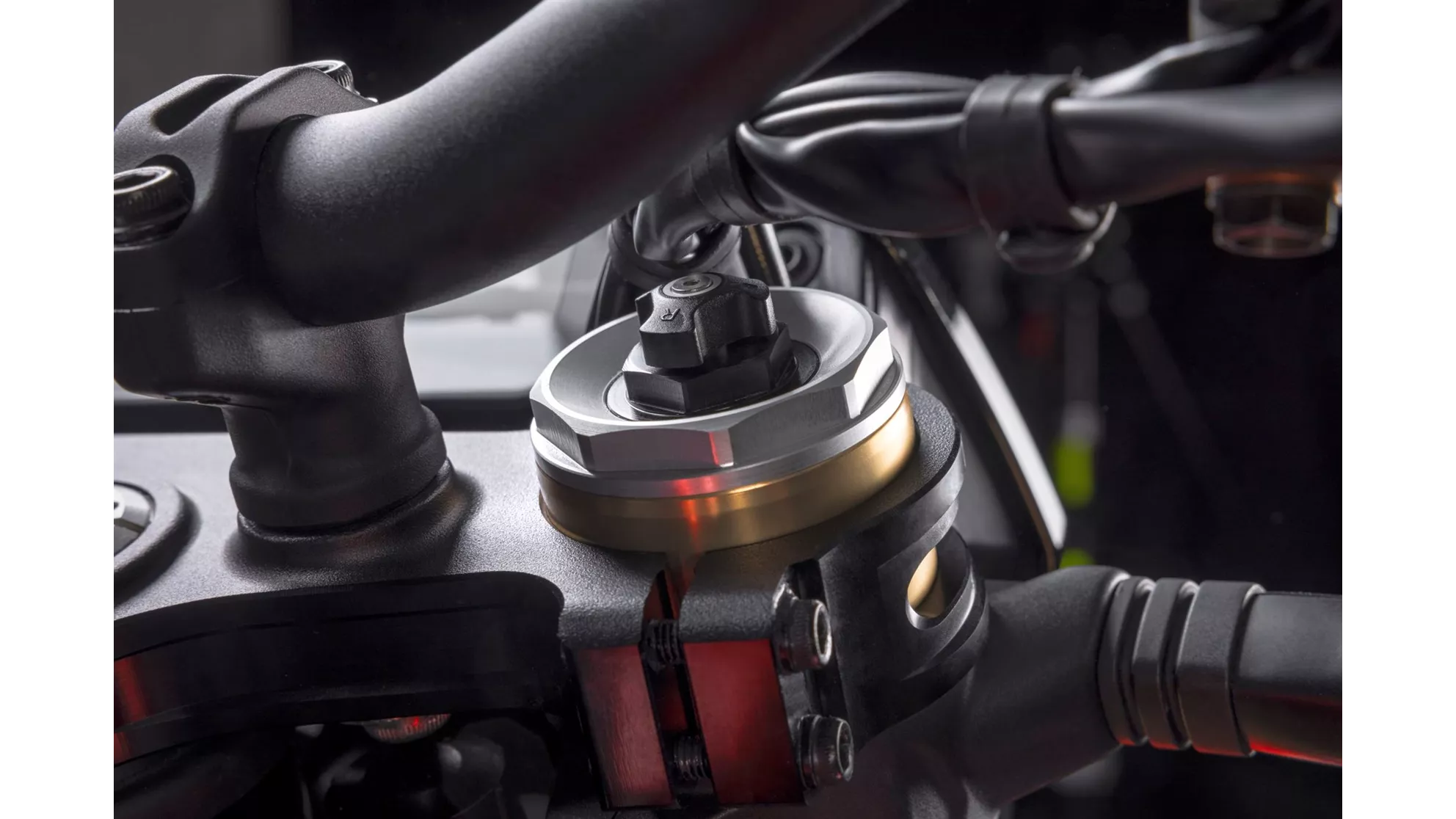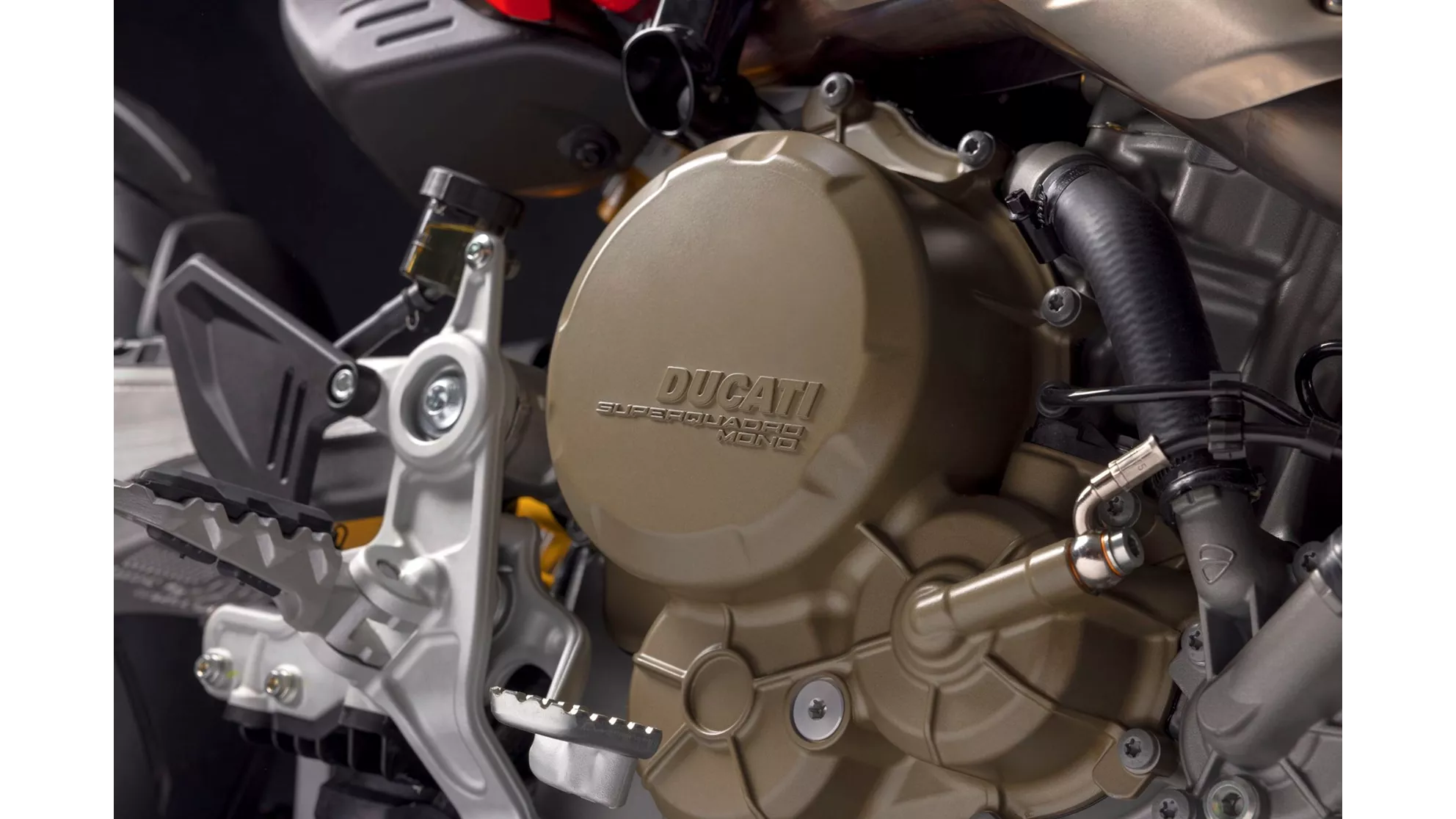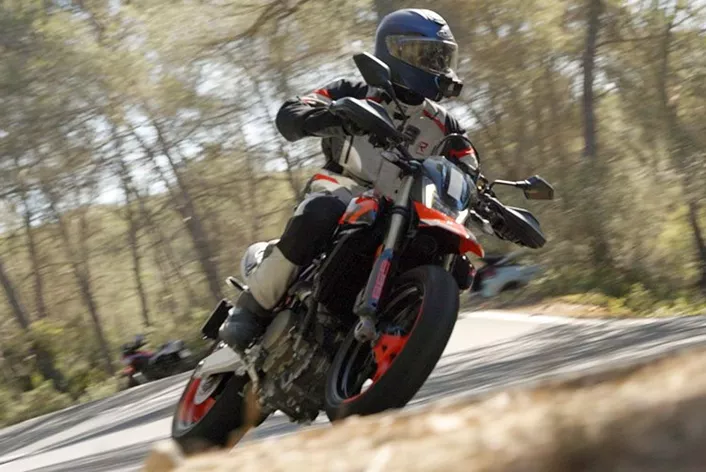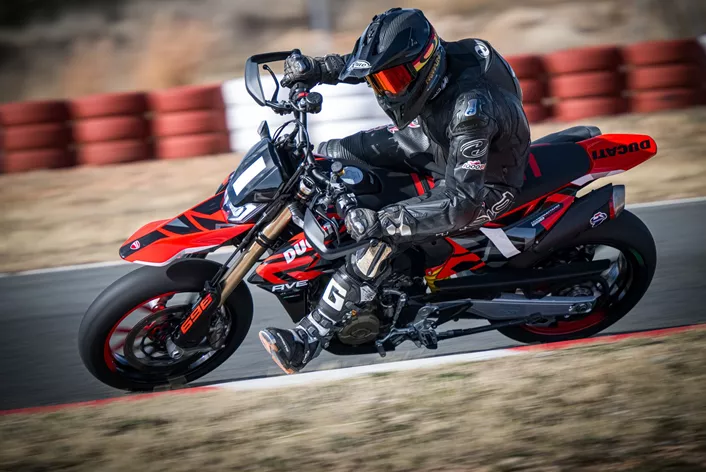Reasonable, economical, and down-to-earth? No. The Ducati Hypermotard 698 Mono RVE and the Ducati Monster may represent the most affordable entry into the sporty Ducati world and belong to the more accessible models in terms of power delivery and everyday usability, but they are not exactly cheap. The entry prices are 13,390 euros for the Mono RVE and 12,390 euros for the Monster in Germany. However, buyers are offered a lot: Besides Italian flair, state-of-the-art technology, and stable value retention, they have a sporty DNA that is unmistakable. Whether the choice falls on the Mono or the Monster - both bikes offer an impressive power-to-weight ratio, electronic features, as well as high-quality chassis, brakes, and tires that make no compromises for dynamic riding on twisty roads.
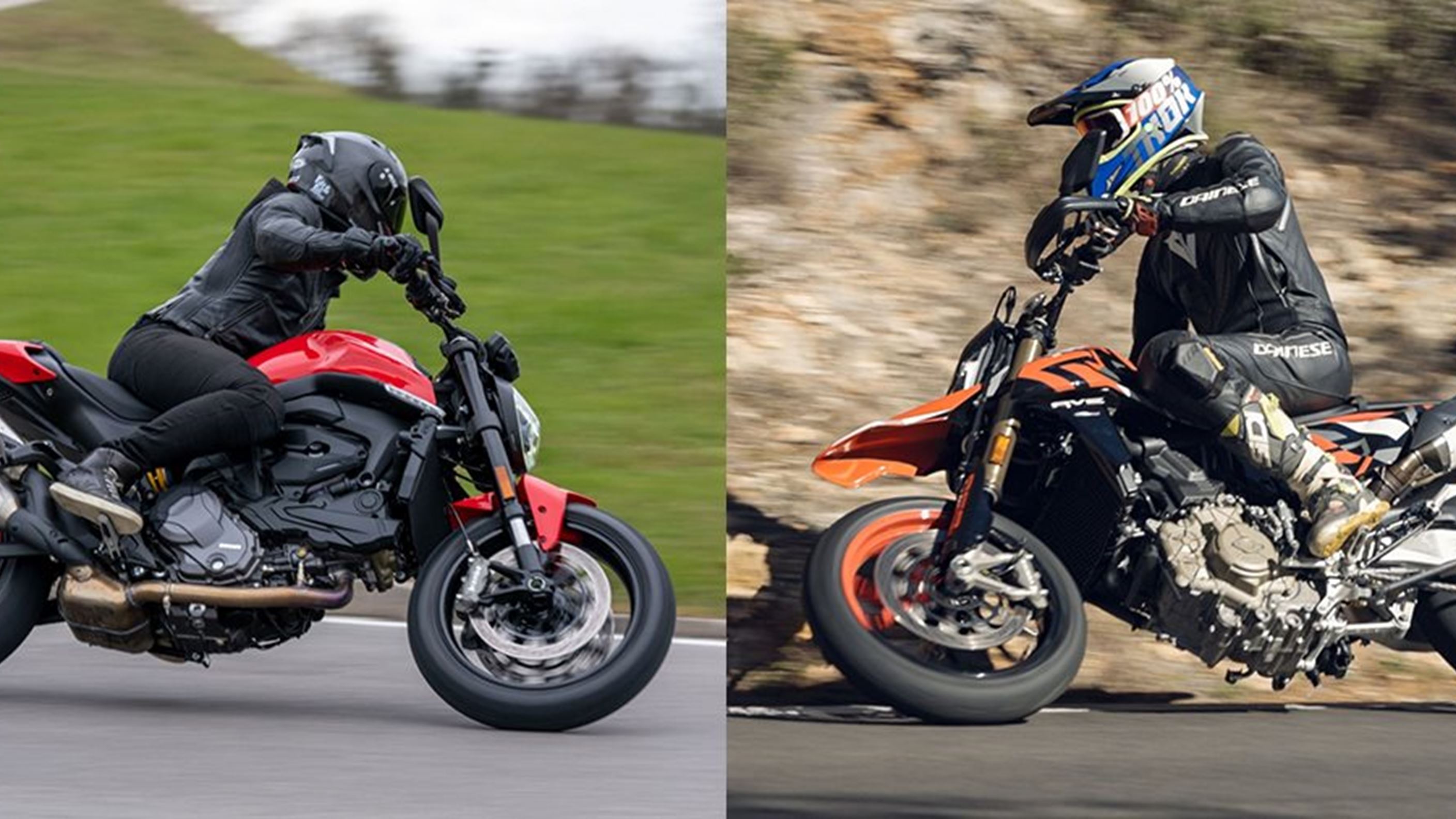
Concept Comparison: Ducati Hypermotard 698 Mono RVE vs. Monster
Exciting Showdown Between the Two Sportiest Entry-Level Models
During the World Ducati Week, we took the opportunity to conduct an exciting ride test with Ducati's current Monster and the brand-new Hypermotard 698 Mono. In doing so, we highlighted the differences between the two models and examined how well they are suited for urban traffic, country roads, long tours, or the race track.
&width=72&height=72&bgcolor=rgba_39_42_44_0&mode=crop)
nopain
published on 11/08/2024
Single or twin? It depends...
The heart of the Mono is the newly developed Superquadro Mono, a single-cylinder engine with 659 cc, 77.5 hp at 9750 rpm, and a maximum rev limit of 10,250 rpm. The maximum torque is 63 Nm at 8000 rpm, and the wet weight is 151 kg. Dividing power by weight gives us 0.51 hp/kg; that's quite a statement for a single. The Monster, on the other hand, is powered by Ducati's proven Testastretta 90° V2, a twin-cylinder engine with 937 cc, 111 hp at 9250 rpm, and 93 Nm at 6500 rpm. With a wet weight of 179 kg, this results in 0.62 hp/kg, meaning a power-to-weight ratio that is 20% higher than that of the Mono.
And yet, when you set aside the various pros and cons of the two concepts, the geometry, the riding performance, and the rest of the features, there is practically no performance difference between the two bikes. Despite the difference of 33.5 hp and 30 Nm, they are absolutely on par in terms of acceleration and pulling power on the country road.
The translation does the trick!
But how is that possible? The answer lies in the gear ratios. We analyzed the primary, gearbox, and final drive ratios and found that the Mono is geared about 20% shorter in the relevant gears. This significantly offsets its 20% lower power-to-weight ratio, resulting in better acceleration. On the other hand, the longer gearing of the Monster allows for potentially higher top speeds and ensures a smoother ride. This means: The Mono is ideal for those who value agility and quick acceleration, while the Monster is suited for riders who prefer a smooth ride, comfortable cruising without frequent shifting, and higher top speeds.
Everyday Usability and Performance in the Urban Jungle
The shorter gearing of the Mono brings real performance advantages on country roads but can quickly become impractical in city traffic. The first gear is mainly suitable for starting, while the second gear tends to jerk at low revs or becomes very aggressive at higher revs. Therefore, it is advisable to use the third gear, which causes slight constant-speed jerking in stop-and-go traffic up to about 45 km/h. The strong heating of the header in traffic jams or at traffic lights also shows that the Mono is a purebred racing motorcycle that wants to be ridden. The Monster shows more everyday usability in these areas, not least thanks to its longer gearing. It also offers good visibility, high agility, and an excellently functioning quickshifter that shifts smoothly from second to first gear.
Seat heights and riding comfort
For some riders, the seat height of the Mono might be intimidating, as it stands at 904 mm with the standard seat. However, this number is relative because the 45 mm Marzocchi USD fork with 215 mm travel and the Sachs Monoshock with 240 mm travel offer significant negative travel, causing the bike to sink considerably when mounted. With optional Ducati accessories, the seat height can additionally be reduced to between 849 and 889 mm. The Mono's chassis is sportily firm, allowing for high speeds and precise feedback from the front wheel on good asphalt. However, on poorer road sections, a weakness becomes apparent: the fork is not very comfortable and inadequately dampens bumps. Nevertheless, the suspension is fully adjustable at both the front and rear, allowing for individual adjustments. The seat comfort is rather low, and the pillion suitability is limited. Pillion footpegs are not mounted as standard but are only supplied as part of the accessory package.
The situation is different with the Monster. It has a significantly lower seat height of 820 mm, which can be adjusted to 775 to 800 mm with optional Ducati accessories. The Monster's chassis is more comfort-oriented, which is particularly advantageous on longer tours. However, the heavily diving front can be disturbing during sharp braking. In the standard version of the Monster, only the preload on the rear shock absorber is adjustable; other adjustments are not possible. Connoisseurs or the well-heeled therefore opt for the SP variant, which comes equipped with a fully adjustable Öhlins suspension.
Fuel tank capacity and consumption
- How much does a Ducati Monster cost?
- Here you will find an overview of the price level of new and used motorbikes!
One important point for longer tours that stands out with the Mono is the 12-liter fuel tank compared to the 14-liter tank of the Monster. With a consumption of 4.8 l/100 km for the Mono and 5.2 l/100 km for the Monster, the difference may initially seem small. However, the thirst of the Mono increases significantly with rising speed. After about 180 kilometers, the fuel reserve light comes on, and after 200 km, refueling is urgently needed, while the Monster can easily go another 50 km.
On the race track
For fast supermoto or kart tracks, the Mono is almost "race-ready." The braking system, equipped with a radial 4-piston Brembo M4.32 and a specially developed 330-mm mono disc with an aluminum flange, offers excellent initial bite, precise controllability, and high braking performance both on the road and on the race track. The 17-inch Y-design alloy wheels, combined with Pirelli Diablo Rosso IV tires (120/70 ZR17 front and 160/60 ZR17 rear), ensure an all-around enjoyable riding experience. For even sportier demands, tires like the Pirelli Diablo Supercorsa SC V3, the ContiAttack SM 2, or the Michelin Power GP 2 can be fitted to really give it the beans on the track without tire warmers. For true racing ambitions, supermoto slicks in special dimensions are even an option, and the rear gearing can be adjusted according to track requirements. The "TYRE CALIBRATION" function in the settings ensures that the electronics and the quickshifter work flawlessly even after a tire change or a change in final gearing. However, it is important to know that any change in final gearing voids the warranty and the bike is no longer allowed to be ridden on public roads.
If slicks are used, it is essential to choose special supermoto slicks and the softest compound, as superbike slicks like SC1 or SC2 may not always maintain optimal temperature depending on the track. An additional note concerns the mirrors: Ducati has attached the reservoirs for the clutch and brake fluid using the mirrors on the Brembo clamps, so the reservoirs cannot be easily secured with the mirrors removed. However, there are numerous simple and cost-effective solutions for this issue, so it is advisable to address it well before the track day.
The Monster may appear slightly less sporty than the Mono, but it is by no means unsporty. The same principle applies here: mirrors down, license plate off, and onto the race track. The Pirelli Diablo Rosso III are certainly sufficient for track days in the green or blue groups, and thanks to the solid engine and higher final drive ratio, the Monster also performs well on faster tracks like the Pannoniaring, Slovakiaring, or Brno. For even more riding pleasure, tires such as the Pirelli Diablo Supercorsa, the Conti SportAttack, or the Michelin Power GP 2 could be advantageous. Those who don't shy away from tire warmers will find that the Michelin Power Slick 2 offers a very hassle-free performance in terms of temperatures and asphalt. With the Monster, the rear sprocket can also be changed according to the user manual, and both the electronics and the blipper can be calibrated. However, it should be noted that this will void the warranty and operating permit according to the StVO.
It is worth mentioning the somewhat tame brakes of the Monster. The 320 mm dual-disc system with radial Brembo M4.32 monoblock calipers offers good modulation and sufficient delay but could bite a bit sharper initially. The braking system of the standard Monster is obviously designed for everyday usability, which is why a bit more hand force is required.
Electronics - twice everything
When it comes to electronic aids, the Mono RVE has a slight edge. It features a 3.8-inch black-and-white LCD that is excellently readable, as well as a comprehensive electronics package with ride-by-wire, four riding modes (Sport, Road, Urban, Wet), a four-stage cornering ABS with “Slide-by-Brake”, Ducati Traction Control, four-stage wheelie control, Ducati Power Launch, full LED lighting with daytime running lights, dynamic brake light, USB port, and a lithium-ion battery under the seat. The standard quickshifter allows for both upshifting and downshifting. The Monster essentially offers a similar range of features, but with a 4.3-inch color TFT display, without the supermoto-specific ABS/DWC functions, and without a lithium battery.
| ```markdown | |||
|---|---|---|---|
| Hyper 698 Mono RVE | Monster | In Comparison | Engine | Superquadro Mono 1-cylinder 659 cc | Testastretta V2-90° 2-cylinder 937 cc | Matter of taste | Power | 77.5 hp at 9,750 rpm (max. 10,250 rpm) | 111 hp @9,250 rpm | Monster +33.5 hp | Torque | 63 Nm @8,000 rpm | 93 Nm @6,500 rpm | Monster +30 Nm | Weight (wet) | 151 kg | 179 kg | Mono -28 kg (!) | Power-to-weight ratio | 0.51 hp/kg | 0.62 hp/kg | Monster +20% | Transmission | Primary ratio: 1.968:1 Gears 1=36/13, 2=35/17, 3=32/20, 4=29/22, 5=24/21, 6=26/25 Secondary ratio: 42/15 | Primary ratio: 1.85:1 Gears 1=37/15, 2=30/17, 3=28/20, 4=26/22, 5=24/23, 6=23/24 Secondary ratio: 43/15 | Mono about 20% shorter geared for maximum acceleration, Monster longer gears for higher top speed | Sound (Euro-5) | Good | Satisfactory | Mono sounds more brutal | Seat height | 904 mm (849-889 mm) | 820 mm (775-840 mm) | Monster lower | Seats | 2 | 2 | Monster suitable for pillion | Fuel tank capacity | 12 liters (4.8 l/100 km) | 14 liters (5.2 l/100 km) | Monster slightly more range | Wheelbase | 1,443 mm, Rake 26.1°, Trail 108 mm | 1,474 mm, Rake 24°, Trail 93 mm | Matter of taste: agility vs. stability | Front suspension | 45 mm Marzocchi 215 mm, fully adjustable | 43 mm USD 130 mm | Mono fully adjustable | Rear suspension | Sachs Monoshock 240 mm, fully adjustable | Monoshock 140 mm, preload adjustable | Mono fully adjustable | Front brakes | Brembo M4.32 single disc 330 mm, 4-piston, radial, cornering ABS | Brembo M4.32 dual disc 320 mm, 4-piston, radial, cornering ABS | Draw: suited to their respective purposes | Rear brakes | Brembo 245 mm, 1-piston, cornering ABS | Brembo 245 mm, 2-piston, cornering ABS | Monster ahead on paper, draw in practice | Wheels | Y-shaped 5-spoke light alloy wheels 17" | Light alloy wheels 17" | Mono with lighter wheels | Tires | Pirelli Diablo Rosso IV 120/70 ZR17 front 160/70 ZR17 rear | Pirelli Diablo Rosso III 120/70 ZR17 front 180/55 ZR17 rear | Mono with latest tire generation | Electronics package | 3.8-inch LCD in black/white, Ride-by-Wire, Riding (Sport, Road, Urban, Wet) Modes, cornering ABS (4-level with "Slide-by-Brake"), DTC, DWC (4-level), EBC, DPL, Full LED with daytime running light, DBL, USB, Lithium-Ion Battery | 4.3-inch TFT in color, Ride-by-Wire, Riding Modes, cornering ABS, DTC, DWC, Full LED with daytime running light, DBL, USB | Pretty balanced, Mono with special Supermoto features for the track | Quickshifter | Yes, standard | Yes, standard | Draw | Accessories (prepared) | Alarm system, Ducati Multimedia System, heated grips, and Termignoni Racing-Full Exhaust including Racing air filter for 84.5 hp at 9,500 rpm | Alarm system, Ducati Multimedia System, heated grips | Prices | D: € 13,390,- A: € 15,595,- CH: CHF 14,290 | D: € 12,390,- A: € 14,695,- CH: CHF 13,190 | ``` |
Conclusion and Purchase Recommendation
Mono or Monster? This question can only be answered individually, as it strongly depends on the rider type and personal requirements for the bike. The 698 Mono is a true performance fun bike, particularly suited for solo riding. It offers impressive acceleration, high agility, and is ideal for sporty rides on country roads as well as regular sessions on the supermoto track. The twin-cylinder Monster also impresses with sporty performance on country roads but is additionally suitable for longer tours with a pillion and city rides. Track days on faster race tracks are also easily manageable with the Monster.
- How much does a Ducati Hypermotard 698 Mono RVE cost?
- Here you will find an overview of the price level of new and used motorbikes!
&width=60&height=60&bgcolor=rgba_39_42_44_0&mode=crop)
Ducati Monster 2024 - Experiences and Expert Review
nopain
The aesthetics and the absence of a trellis frame can always be debated, but the current Monster is anything but ugly. Fundamentally, it would be a great daily naked bike with comfortable ergonomics and a braking system that won't surprise even inexperienced riders. The rather soft suspension can also be considered an acceptable compromise, although it is quite surprising for a Ducati that at least the front fork wasn't tuned a bit stiffer. Unfortunately, the charismatic engine bucks strongly at low revs and only truly showcases its glorious V2 character on country roads. Overall, however, this reflects the overall picture of the Monster very well: A typical Ducati, which is also well-suited for daily rides in terms of suspension and brakes.
&width=60&height=60&bgcolor=rgba_39_42_44_0&mode=crop)
Ducati Hypermotard 698 Mono RVE 2024 - Experiences and Expert Review
nopain
With the Hypermotard 698 Mono, Ducati has crafted an incredibly impressive debut! The bike takes all the qualities one looks for in a street-legal supermoto and elevates them to a top-notch, refined level. Nowadays, you won't find a comparable single-cylinder engine, while the electronics package rounds off the concept. Yet, it feels pure, irrational, and playful - like a true rowdy bike.
More from 1000PS Magazine
Concept Comparison: Ducati Hypermotard 698 Mono RVE vs. Monster Images
Source: 1000PS

Ducati Hypermotard 698 Mono RVE

Ducati Monster

Ducati Hypermotard 698 Mono RVE

Ducati Monster

Ducati Hypermotard 698 Mono RVE

Ducati Monster

Ducati Hypermotard 698 Mono RVE

Ducati Monster

Ducati Hypermotard 698 Mono RVE

Ducati Monster

Ducati Hypermotard 698 Mono RVE

Ducati Monster

Ducati Hypermotard 698 Mono RVE

Ducati Monster

Ducati Hypermotard 698 Mono RVE

Ducati Monster

Ducati Monster

Ducati Hypermotard 698 Mono RVE

Ducati Monster

Ducati Hypermotard 698 Mono RVE

Ducati Monster

Ducati Hypermotard 698 Mono RVE

Ducati Monster

Ducati Hypermotard 698 Mono RVE

Ducati Monster

Ducati Hypermotard 698 Mono RVE

Ducati Monster

Ducati Hypermotard 698 Mono RVE

Ducati Monster

Ducati Hypermotard 698 Mono RVE

Ducati Monster

Ducati Hypermotard 698 Mono RVE

Ducati Monster

Ducati Hypermotard 698 Mono RVE

Ducati Monster

Ducati Hypermotard 698 Mono RVE

Ducati Monster

Ducati Hypermotard 698 Mono RVE

Ducati Monster

Ducati Hypermotard 698 Mono RVE

Ducati Monster

Ducati Hypermotard 698 Mono RVE

Ducati Monster

Ducati Hypermotard 698 Mono RVE

Ducati Monster

Ducati Hypermotard 698 Mono RVE

Ducati Monster

Ducati Hypermotard 698 Mono RVE

Ducati Monster

Ducati Hypermotard 698 Mono RVE
